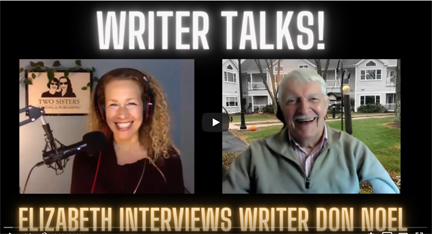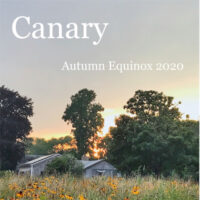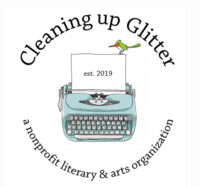Letting adoptees discover their birth parents was an issue back when I was covering the General Assembly. Few if any who testified against the change, as I recall, identified themselves as parents who had given up newborns. The lack of public confessions was easily understood.
When the issue surfaced at the Capitol again not long ago, memories popped up. It didn’t take much, in my new retirement community, to imagine an elderly woman — make her the widow of a clergyman — haunted by fear that her teen-age unwed  pregnancy would be revealed, and she humiliated, if the infant she gave up at birth showed up shouting “Mama!”
pregnancy would be revealed, and she humiliated, if the infant she gave up at birth showed up shouting “Mama!”
Getting the story together took a bit of work, but when I had it right I began sending it out. A literary magazine called (how do they find these names?) Caustic Frolic liked it, and it’s now published. To read it online, click===>here
 Elizabeth Ann Atkins, one of the Two Sisters who awarded The Daddy Tree a prize, invited me to her weekly YouTube writing conversation. I of course accepted: Something new to try, decades after I was the one doing the interviewing on WFSB’s Face the State
Elizabeth Ann Atkins, one of the Two Sisters who awarded The Daddy Tree a prize, invited me to her weekly YouTube writing conversation. I of course accepted: Something new to try, decades after I was the one doing the interviewing on WFSB’s Face the State
 when Two Sisters Writing and Publishing opened a contest for ‘magical realism’, I thought of the deep woods where my lifelong pal Steve and I played a bow-and-arrow game in our junior-high years. Two Sisters had published my “Limerence” as a winner in their 2018 contest anthology; maybe I could try giving that forest a voice.
when Two Sisters Writing and Publishing opened a contest for ‘magical realism’, I thought of the deep woods where my lifelong pal Steve and I played a bow-and-arrow game in our junior-high years. Two Sisters had published my “Limerence” as a winner in their 2018 contest anthology; maybe I could try giving that forest a voice. Kurt Vonnegut Museum and Library, invited stories on the theme of “civic engagement”— and welcomed pieces earlier published elsewhere.
Kurt Vonnegut Museum and Library, invited stories on the theme of “civic engagement”— and welcomed pieces earlier published elsewhere. understanding that humans are part of an integrated system.” I’d drafted a short story, drawn from my experience herding cattle just east of California’s Sierrra Nevada, that imagined an aging cowboy among the ancient bristlecone pines of that range. An inveterate punster, I called it Bristling Senescence. It’s out now in Canary‘s handsome online 50th edition
understanding that humans are part of an integrated system.” I’d drafted a short story, drawn from my experience herding cattle just east of California’s Sierrra Nevada, that imagined an aging cowboy among the ancient bristlecone pines of that range. An inveterate punster, I called it Bristling Senescence. It’s out now in Canary‘s handsome online 50th edition became less of a short story than a mood piece. I wasn’t surprised when a half-dozen literary magazines turned it down.
became less of a short story than a mood piece. I wasn’t surprised when a half-dozen literary magazines turned it down. My Seeing Charlie Off was inspired, a half-dozen years ago, by such a service. I wasn’t sure anyone would want to publish it — until I ran across Cleaning Up Glitter. “We are here to explore the Human Condition,” says founder Amy Tortorella Walsh, “. . . anything that explores your life views, existence, mortality, spirituality, conflict. . . .”
My Seeing Charlie Off was inspired, a half-dozen years ago, by such a service. I wasn’t sure anyone would want to publish it — until I ran across Cleaning Up Glitter. “We are here to explore the Human Condition,” says founder Amy Tortorella Walsh, “. . . anything that explores your life views, existence, mortality, spirituality, conflict. . . .” my short story “Rescue.” The title refers to the wife’s efforts to save her dog that was unavoidably at the scene. A friend who read an early draft thought my ending cruel. But undeterred, I polished it up and sent it off to the Bethlehem (PA) Writers Group. They liked it, and you can read it at their website
my short story “Rescue.” The title refers to the wife’s efforts to save her dog that was unavoidably at the scene. A friend who read an early draft thought my ending cruel. But undeterred, I polished it up and sent it off to the Bethlehem (PA) Writers Group. They liked it, and you can read it at their website  Now Spiders, based on my real-life experience watching a duel between a scorpion and a black widow, is out in True Chili, which bills itself as a a home for cowboy literature. And a third, based on my cowpunching model and guru, has been accepted for October publication. I should mine that memory bank some more!
Now Spiders, based on my real-life experience watching a duel between a scorpion and a black widow, is out in True Chili, which bills itself as a a home for cowboy literature. And a third, based on my cowpunching model and guru, has been accepted for October publication. I should mine that memory bank some more! pregnancy would be revealed, and she humiliated, if the infant she gave up at birth showed up shouting “Mama!”
pregnancy would be revealed, and she humiliated, if the infant she gave up at birth showed up shouting “Mama!” revisiting the Ancient Bristlecone Forest in the Inyo-White Mountains, just east of the High Sierra, where I’d herded cattle one summer in ancient history. I can’t remember now what prompted me to build the story around a homeless couple out to see America, but it flowed fairly well. Unsure of it, though, I set it aside.t
revisiting the Ancient Bristlecone Forest in the Inyo-White Mountains, just east of the High Sierra, where I’d herded cattle one summer in ancient history. I can’t remember now what prompted me to build the story around a homeless couple out to see America, but it flowed fairly well. Unsure of it, though, I set it aside.t